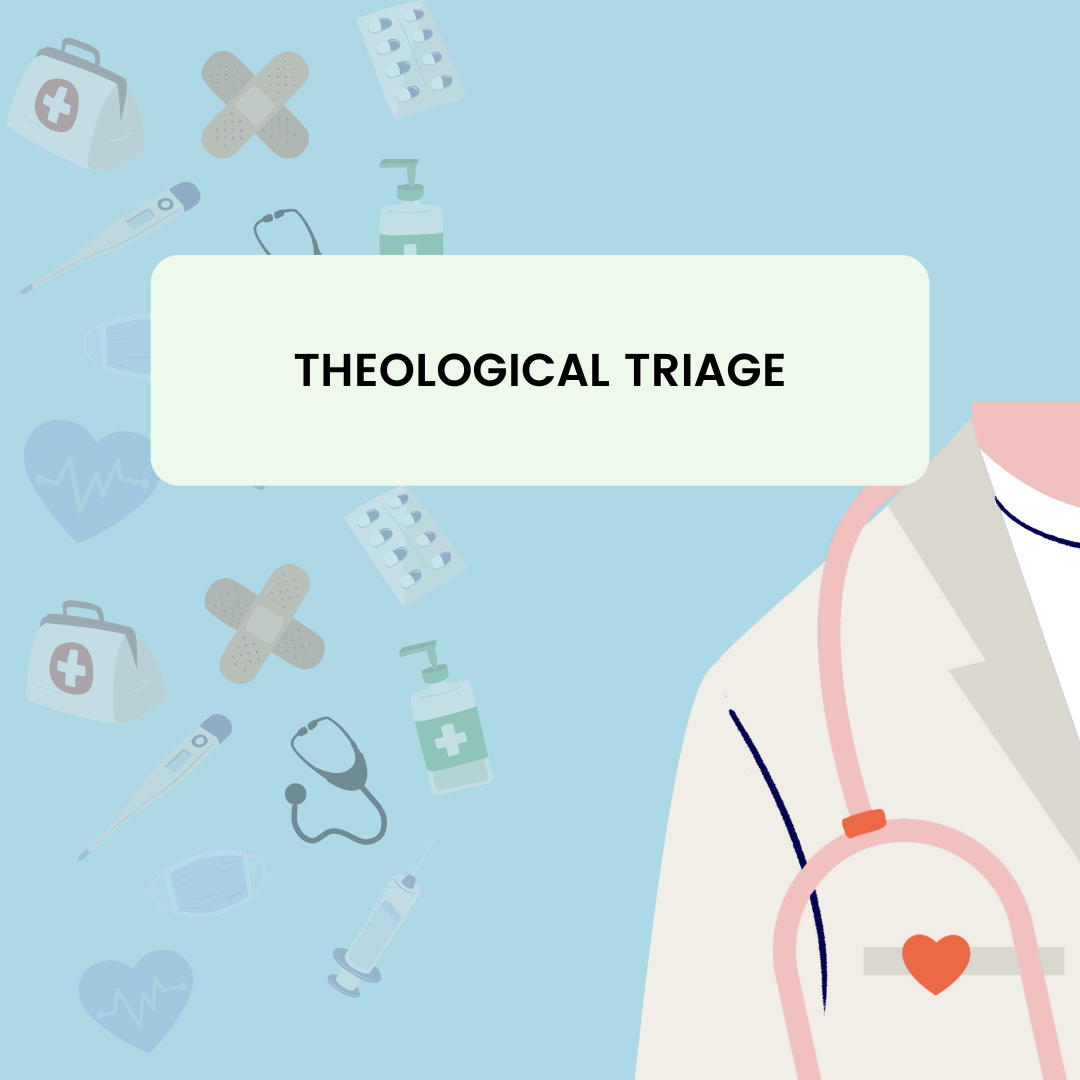The Benefits of “Theological Triage”

My wife has a very rare condition that causes her to go into anaphylactic shock. Twice she almost died, and another time we had to call 911. Her worst allergic reaction dropped her blood pressure to 40/23. But by God’s grace, my wife is still with me, and I cannot imagine life without her. She now carries an EpiPen everywhere she goes, or she gets an earful from me!
Why do I tell you this? Well, it would be great if you would pray for her, but for blogging purposes, the seriousness of these events provided a gripping illustration of triage in the medical realm.
When you go to the emergency room, you are brought to a triage room, where they check your vitals, ask your symptoms and on the spot determine how critical your condition is. For instance, a middle-aged man who has been working hard and arrives at the ER with chest pains and his arm throbbing will be seen quickly. A sore throat? You’ll have a long wait, even if you got there first.
Medical triage makes sense, as some aspects of physical health are simply more urgent than others.
Years ago, Albert Mohler, President of the Southern Baptist Seminary, published an article helpfully extending the concept to “Theological Triage:” Dr. Mohler asserted that although the entire Bible is God’s inspired Word, some content of scripture is more “weighty” than others in the lives of believers.
In our membership class at Flat Run, I use a three-tier system to explain theological triage. Tier 1 is entitled “Gospel Issues.” These are doctrinal truths that, if you do not believe and affirm them, according to the Bible, you cannot rightly call yourself a Christian even if you claim a Christian worldview. Among these truths: the triune nature of God, the divinity of Jesus Christ, the Bible being the Word of God, the physical resurrection of Jesus, and the substitutionary atonement of Christ.
Tier 2 is comprised of church unity issues: those that, depending on how strongly you feel about them, would possibly preclude you from being in the same church comfortably with those you disagree with. (And to acknowledge that there are doctrinal topics true Christians do not agree on would be a massive understatement.) The “hottest” Tier 2 controversies include speaking in tongues and other so-called “charismatic gifts,” election and free will, church government, baptism, and women in leadership.
Elders must come to agreement on, and local churches must take a clear stand on, such issues because confusion could cause division in the Body. I hope to write a series on my own beliefs about these secondary issues in the near future.
Tier 3 would be more preferential issues – such as Bible versions, whether human beings are “trichotomies” or “dichotomies,” even some matters of eschatology – that while important, should not cause division in the church.
What are the benefits of theological triage? For one, it helps develop vital discernment among Christians, who need to understand that every aspect of theology or practice does not carry the same weight. Unfortunately, many fundamentalists cause unnecessary division by elevating Tier 3 into Tier 1 issues, whereas many liberals do the opposite and by default damn many souls to Hell.
Triage also helps us put our differences into perspective and create more unity around the essentials – a critical aspect of church life frequently called out by the Apostle Paul in particular.
While I have merely touched the surface of theological triage, if you take nothing else away from this article, hear this: doctrine is critical, unity is absolutely vital, and to achieve them both, discernment must be cultivated, and triage is helpful in that regard.
May the Lord give us bold churches united in doctrine and purpose.
Soli Deo Gloria!
More in Blog
April 25, 2024
Part 3: Should Children Have Their Own Service? Developing a Family Culture in Corporate WorshipApril 24, 2024
Part 2: Should Children Have Their Own Worship Service? History and Unintended ConsequencesApril 24, 2024
Part 1: Should Children Have Their Own Worship Service: What Does the Bible Say?